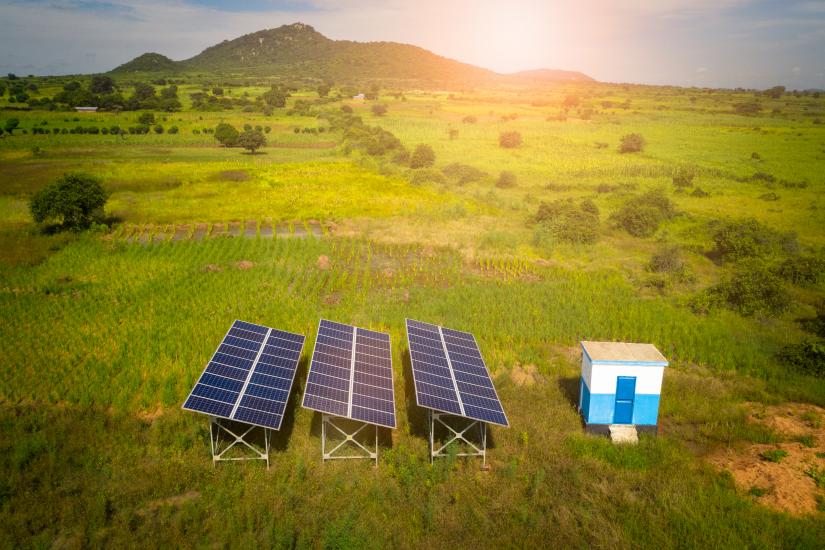A Legal Framework for Sustainable Growth
Tanzania stands at the threshold of a renewable energy revolution, beckoning investors to capitalize on its abundant natural resources. With a diverse landscape boasting potential in hydropower, geothermal, wind, solar, and bioenergy, the country presents a fertile ground for sustainable investment. In this article, we delve into the renewable energy landscape in Tanzania, exploring investment opportunities and the legal framework that underpins this burgeoning sector.
Renewable energy derives from sources that are replenished naturally, such as sunlight, wind, water, and organic materials. Tanzania’s geographical diversity offers a spectrum of renewable energy sources, each holding promise for investors seeking environmentally friendly and economically viable ventures.

Wind Energy: Tanzania’s expansive territory hosts areas with high wind potential, covering over 10% of its landmass. Initiatives like the Energy Sector Management Assistance Program (ESMAP) have utilized satellite imagery to map out wind resources, revealing promising sites for grid-scale electricity generation. Locations such as Kititimo and Makambako exhibit wind speeds conducive to large-scale wind energy projects, attracting investors keen on harnessing this abundant resource.
Geothermal Energy: With numerous active and dormant volcanoes, Tanzania boasts significant potential for geothermal energy development. Assessments indicate the capacity to generate over 5000 megawatts of electricity, presenting a compelling opportunity for investors. The government aims to produce 200 megawatts by 2025, fostering an environment conducive to geothermal energy investment.
Solar Energy: Solar energy initiatives in Tanzania have gained momentum, supported by government programs and large-scale projects like the Singida Solar Major Power Project. Abundant sunshine in regions like Singida and the coast offer prime conditions for solar energy generation, making it an attractive prospect for investors seeking sustainable energy solutions.
Hydropower: Tanzania’s hydropower potential is well-established, with existing projects like the Mtera and Kidatu dams contributing to the country’s energy mix. Ongoing ventures such as the Julius Nyerere hydroelectric power plant underscore Tanzania’s commitment to harnessing its hydroelectric resources for sustainable development.
Bioenergy: Bioenergy, derived from organic materials, presents another avenue for renewable energy investment in Tanzania. Projects like the Mtamba biofuel farm demonstrate the feasibility of biofuel production, offering investors opportunities to contribute to Tanzania’s energy diversification efforts.
Institutional and Legal Framework:
The Ministry of Energy plays a pivotal role in facilitating renewable energy investment, spearheading policy formulation, and providing guidance to stakeholders. Other institutions like the Tanzania Investment Centre (TIC), Rural Energy Agency (REA), Tanzania Electricity Supply Company (TANESCO), and Energy and Water Utilities Regulatory Authority (EWURA) collaborate to create an enabling environment for investors.
The legal framework governing renewable energy investment in Tanzania is robust and multifaceted, comprising laws, regulations, and institutional mechanisms aimed at promoting sustainable development. Key legislation includes the National Energy Policy, Tanzania Investment Act, Electricity Act, Energy and Water Regulatory Authority Act, Rural Energy Act, Environmental Management Act, and Land Act, among others.
The Tanzania Investment Act of 2022, administered by the Tanzania Investment Centre, provides a favourable regulatory environment for clean energy investments, allowing foreign investors to participate in renewable energy projects. The Energy and Water Utilities Regulatory Authority Act empowers EWURA to oversee licensing and regulation of renewable energy ventures, ensuring compliance with industry standards.
Environmental considerations are paramount in renewable energy projects, necessitating adherence to environmental impact assessments mandated by the Environmental Management Act. Land acquisition procedures are governed by the Land Act, which allows for derivative rights issuance by the Tanzania Investment Centre and long-term leases for renewable energy investments.
Dispute Resolution Mechanism:
A quick way of resolving an investment dispute is via arbitration which the Arbitration Act of 2020, offer avenues for resolving conflicts arising from renewable energy investments. Investors can opt for local arbitration or pursue international arbitration through agreements like the International Centre for Settlement of Investment Disputes (ICSID), ensuring recourse in case of disputes.
In conclusion
Tanzania presents a compelling proposition for renewable energy investments, backed by abundant natural resources and a supportive legal framework. As the country strives towards sustainable development, investors have a unique opportunity to participate in shaping its energy landscape while contributing to global efforts towards environmental conservation. However, it’s imperative for investors to navigate the legal landscape prudently, seeking expert guidance to ensure compliance and mitigate risks.
Disclaimer
This publication serves as a general guide for renewable energy investment in Tanzania and should not be solely relied upon. AVC & Partners (Advocates) disclaims liability for any damages resulting from reliance on this article. For accurate legal guidance, please consult with us directly.

